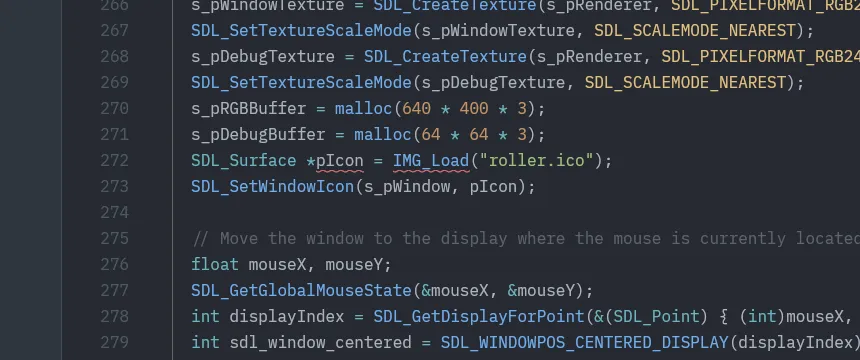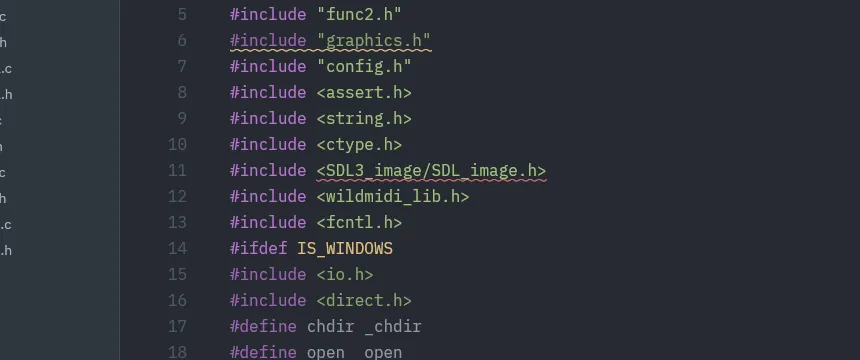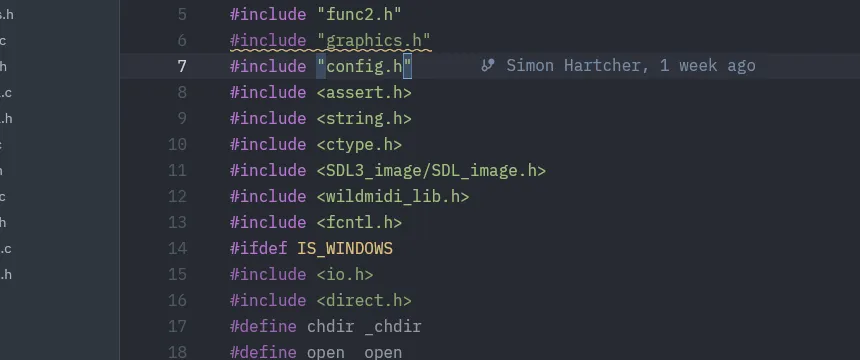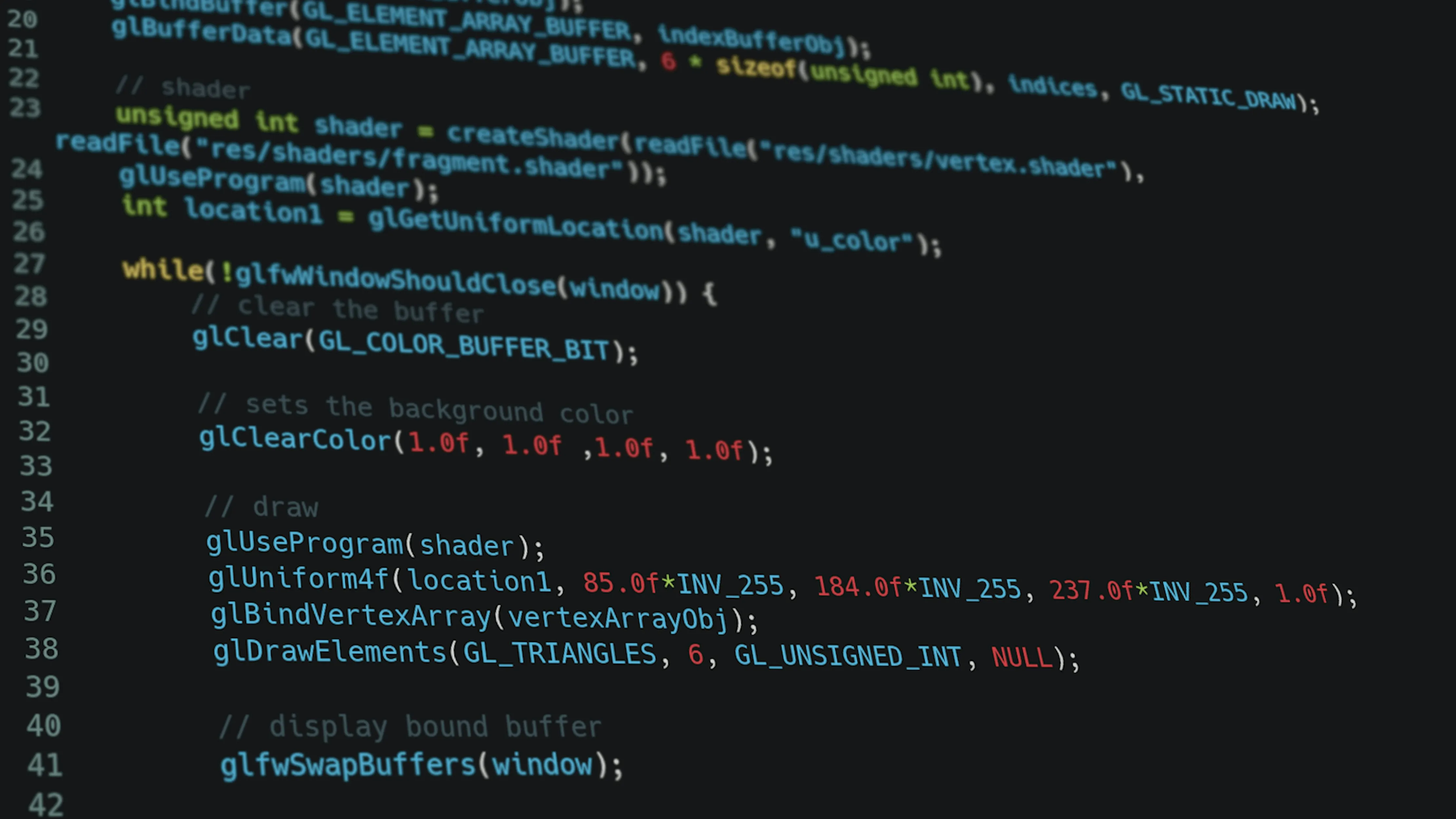When using Zig’s build system for C/C++ projects, editors struggle to find include paths and provide proper code intelligence. compile_flagz solves this by automatically generating compile_flags.txt from your build.zig configuration.
The Problem
Recently I’ve been working on ROLLER, a decompilation project for the 1995 game, Fatal Racing (or Whiplash in NA). The game (known internally as Roller), is an early 3D game written in C with a bespoke engine. It also happens to be one of my favourite games from the 90s. I remember playing it a whole lot as a teenager with my best friend after we found it on a WAREZ CD. I’ve since fixed the error of my ways and secured a physical copy a few years ago. You can read more about it here.

Zig provides a powerful build system, and it ships a C/C++ compiler using LLVM. It can make cross-compilation of projects a breeze, allowing you to build for just about any target you want. (Note: unfortunately it’s not currently possible to cross-compile SDL from Linux to MacOS.)
However when working with said C/C++ code with Zig as your build system, your editor (or IDE) won’t be able to find the necessary include paths or libraries to make the developer experience seamless.
Your editor needs some way to determine where your includes live so that it can provide rich code completion and error highlighting. Consider the following code from ROLLER:
// File: roller.c
// Without include paths, your editor won't know where to find the SDL_image header file.
#include <SDL3_image/SDL_image.h>
// ...
int InitSDL()
{
// ...
s_pWindowTexture = SDL_CreateTexture(s_pRenderer, SDL_PIXELFORMAT_RGB24, SDL_TEXTUREACCESS_STREAMING, 640, 400);
SDL_SetTextureScaleMode(s_pWindowTexture, SDL_SCALEMODE_NEAREST);
s_pDebugTexture = SDL_CreateTexture(s_pRenderer, SDL_PIXELFORMAT_RGB24, SDL_TEXTUREACCESS_STREAMING, 64, 64);
SDL_SetTextureScaleMode(s_pDebugTexture, SDL_SCALEMODE_NEAREST);
s_pRGBBuffer = malloc(640 * 400 * 3);
s_pDebugBuffer = malloc(64 * 64 * 3);
// This will build fine, but the editor doesn't know what this is
SDL_Surface *pIcon = IMG_Load("roller.ico");
SDL_SetWindowIcon(s_pWindow, pIcon);
// ...
}In most cases the SDL_image header will not be found and you get red squiggles.


When programming, there is nothing worse than trying to work with a codebase when you can’t navigate to the source code or get basic auto-complete for a library.
Enter compile_flagz
My package compile_flagz aims to solve this problem by generating a compile commands file. In this case: compile_flags.txt. This file is a standard format that language servers like clangd use to understand your project’s compilation settings. For ROLLER it looks like this:
-I/home/sh/.cache/zig/p/sdl-0.3.0+3.2.22-7uIn9Pg3fwGG2IyIOPxxOSVe-75nUng9clt7tXGFLzMr/include
-I/home/sh/.cache/zig/p/N-V-__8AAJB7IgJ65BPSqjqzt7j-5xKDklR0h8c11T60iemj/include
-I/home/sh/.cache/zig/p/wildmidi-0.4.6-fQncf6jFDgCtSOKbYs0wEaUZ4n1vMUKaU3OWGXfQD9cL/includeThese are the Zig cache paths for SDL, SDL_image, and Wildmidi respectively.
How It Works
After adding it as a dependency to your project:
zig fetch --save git+https://github.com/deevus/compile_flagzAt a high level, the process is as follows:
- Import
compile_flagzdirectly into yourbuild.zigfile. (Note: not usingb.dependency) - Create a
CompileFlagsinstance by callingcompile_flags.addCompileFlags(b). - Add your include paths using
CompileFlags.addIncludePath. - Create a
compile-flagsstep so that you can generatecompile_flags.txton demand. - (Optional) Make your top level build step depend on the compile flags step.
- When the
compile-flagsstep is run, it will generatecompile_flags.txtin the root of your project.
Real-World Example
Our setup for it in build.zig looks like this:
fn configureDependencies(b: *Build, exe: *Compile, target: ResolvedTarget, optimize: OptimizeMode) void {
const exe_mod = exe.root_module;
// build dependencies
const wildmidi = b.dependency("wildmidi", .{
.target = target,
.optimize = optimize,
});
const wildmidi_lib = wildmidi.artifact("wildmidi");
const sdl_image = b.dependency("SDL_image", .{
.target = target,
.optimize = optimize,
});
const sdl_image_lib = sdl_image.artifact("SDL3_image");
const sdl = b.dependency("sdl", .{
.target = target,
.optimize = optimize,
.lto = .none,
});
const sdl_lib = sdl.artifact("SDL3");
exe_mod.linkLibrary(sdl_lib);
exe_mod.linkLibrary(sdl_image_lib);
exe_mod.linkLibrary(wildmidi_lib);
const sdl_image_source = sdl_image.builder.dependency("SDL_image", .{
.lto = .none,
});
var cflags = compile_flagz.addCompileFlags(b);
cflags.addIncludePath(sdl.builder.path("include"));
cflags.addIncludePath(sdl_image_source.builder.path("include"));
cflags.addIncludePath(wildmidi.builder.path("include"));
const cflags_step = b.step("compile-flags", "Generate compile flags");
cflags_step.dependOn(&cflags.step);
}
const compile_flagz = @import("compile_flagz");The result is that your editor can now resolve your project’s dependencies.

Quick Start
Here’s the minimal code you need to get started:
// In your build.zig
const compile_flagz = @import("compile_flagz");
pub fn build(b: *std.Build) void {
// Your existing build setup...
// Add compile_flagz
var cflags = compile_flagz.addCompileFlags(b);
cflags.addIncludePath(your_dependency.path("include"));
// Create the step
const cflags_step = b.step("compile-flags", "Generate compile flags");
cflags_step.dependOn(&cflags.step);
}Then run zig build compile-flags to generate your compile_flags.txt.
Future Plans
The clang compile commands design page says the following:
The most critical flags in practice are:
- Setting the
#includesearch path:-I,-isystem, and others.- Controlling the language variant used:
-x,-stdetc- Predefining preprocessor macros,
-Dand friendsWithout these flags, clangd will often spectacularly fail to parse source code, generating many spurious errors (e.g.
#includedfiles not being found).
So far compile_flagz only implements the -I case. If you need additional features, please open an issue or raise a pull request: https://github.com/deevus/compile_flagz
Conclusion
If you are considering using Zig as your build system for your C or C++ project (and you should!), consider adding compile_flagz to your project. It may greatly improve your development experience.
Give it a try on your next C/C++ project using Zig build, and let me know how it goes. If you find it useful, please star the repository!
Links:

Loading comments...